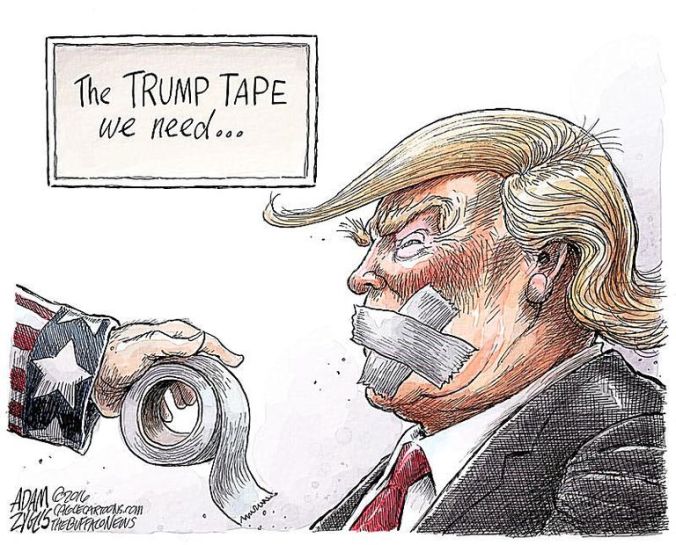
The Donald may think an Israeli peace accord is not so tough because he hadn’t realized that Israel is in the Middle East, or at least he didn’t seem to know that when he told the Israeli press that he had just arrived in Israel from the MIddle East. Despite this one of several missteps, we thought he was taking the region by storm, trying to refocus our attention on the grandeur of his presidency. Now, we have the rollout of the proposed budget, just to dust up more of the constant media storm that is giving us whiplash.
The budget rips the underpinning away from the faux populism of the Trump campaign. He was always about the plunder of the working and middle classes and now he’s taken off the gloves. But make no mistake, this budget is the vision of Mike Mulvaney, Tea Party member, who believes in small government, erasure of the national debt, and poverty as personal failure. The uncompromising Tea Party and pragmatist power hungry Trump have nothing in common, except that 45 named Mulvaney to head the budget agency so he must believe that that vision will keep him in office. The OMB Director laid it out: The new measure of compassion is how many people can come off the government teat. This budget, written from the perspective of the taxpayer, should be called the Taxpayer First Budget, although it is officially titled “A New Foundation for American Greatness” which has a certain bureaucratic ring. He’s banking on the dog whistle kool aid that Medicaid recipients are primarily minorities, part of what has become commonsense racism among many whites across the political and class spectrum.
The party narrative says government entitlement programs are a disincentive to work because there are plenty of jobs out there. Obviously, that depends on where there is. Manufacturing workers tossed out as plants closed will be the first to testify that “lots of jobs” are not in their locations, not for them or their sons and daughters who are part and parcel of the disenchantment with the previous administration. The number of jobs for those with a high school diploma or less is shrinking every day. Trump’s much touted announcements of new jobs he created turns out to be credit for corporate plans already in motion. The NY Times enumerated some of the direct deals announced– at Carrier 1300 jobs went to Mexico, 800 stayed in the US; Ford, canceled a new factory while moving production to an already existing Mexican one; at General Motors, there was net loss of 200 jobs. Reporters could find not a single job 45 dealed into existence. In any case, the announcements were restricted to specific companies. What are people supposed to do while they are waiting for the promissory note of economic growth as calculated in the new budget?
The budget proposed to slash SNAP (formerly Food Stamps) by $190 billion. Contrary to his remarks, Mulvaney has access to the statistics that support the fact that a significant number of SNAP recipients are already working, at low wage jobs like fast food, day care assistant or even military wives. There is nothing in Republican rhetoric to support higher minimum wages so that low wage workers can afford to leave the SNAP program; in fact, the Secretary of Labor opposes higher wages as too burdensome on “job creators”. Even as the GOP proposes massive tax cuts for businesses and their bosses, which should boost company profits, there seems to be no room in the windfall for living wages.
What about those welfare mothers, driving cadillacs while texting on their iPhones and checking time on their iWatches? The budget proposes a $15.6 billion cut to Temporary Assistance to Needy Families (TANF), what used to be called welfare, which primarily supports children through their mothers. At least in Georgia, admittedly, a state that spends among the lowest amounts of all states on poverty programs, there are no healthy able bodied men enrolled in TANF. Mothers enrolled in TANF are by in large unwed high school dropouts, often attributable to unintended pregnancies, who have few job skills and even less knowledge of approaches to gaining employment or work habits. Georgia has only one program in the state designed to teach these skills! These are women who use burner phones, parse their texting to the essential and do without phone minutes until the next check. These women have few options for jobs with a living wage where the weekly pay stub exceeds the cost of childcare. In addition, these jobs often pit the choice of staying home with a sick child against job loss. The burden of difficulties with childcare and care of sick children actually places the children at risk in unlicensed poor quality childcare facilities or latch-key homes. Of course, some kids might at least have been able to go to after-school programs, but damned if 45 wants to ax those as well. Alternatively, kids can go to school sick, ideal for both spreading illnesses and less than optimal school performance or stay home unattended.
By the way, Mulvaney says, our fluffytop President promised to leave Medicare and Social Security and Medicaid untouched and he has. The budget kept that promise about Medicare and Social Security, at least to the elderly, even if not all of them. So while Social Security benefits to the elderly go unaffected, $48 billion in savings is slated for the disability program through “new approaches to work”. Think of the possibilities for a headset strapped, wheelchair bound telemarketing or medical billing specialist working conveniently from a home computer.
With Social Security unscathed, Mulvaney has found another group of retirees to stick it to: federal employees. The proposed savings of $63 billion in retirement benefits is planned to come from reduction in cost of living increases and increased employee contributions. It is important to consider that federal employees receive retirement benefits rather than Social Security because the federal government doesn’t contribute to the fund. For those fortunate to have worked outside the federal civil service, they can collect Social Security benefits for those nongovernment employment periods.
But damn, 45 has shafted Medicaid hard, to the tune of $600 billion over the next decade. This, in addition to proposed cuts embedded in the healthcare plan. Mulvaney has cleverly constructed a denial of Medicaid cuts by saying that spending will simply not increase from current amounts or as much as estimates from the Congressional Budget Office predicts will be needed. He’s smoothly dancing around the truth. The bottomline is that there will be quite a few grandmas and grandpas kicked out of nursing home care or hospitals required to deliver mothers in labor who won’t be reimbursed or pregnant women who will have to do without prenatal care. Not Mulvaney’s problem; he thinks those old people should have had nicer children or saved up more for their old age or that people who can’t afford to pay for having a baby shouldn’t. He shifted the decisions to state governors, so they can be left holding the bag because as local politicians, they’ll know how to avoid alienating the groups most likely to kick them out of office.
Bear in mind, this could be a budget head fake. Basically, they presented the worst possible scenario to redeem the compromised budget that Congress will pass as a gift yanking us back from the edge of the abyss.
We have seen some of the usual media analysis of budget betrayal of the TrumpPack, those left feeling hopeless and disenfranchised by the Democratic Party. Progressives are hoping that this will be the straw that breaks the camel’s back and send Trump voters away from the GOP. After all, 7 of the 10 states with the highest SNAP budgets voted for Trump. But the genesis of Trump support is more complex than the usual political analysis.
 Trump supporters envision welfare recipients as Black and immigrant, particularly asylum seekers, having long internalized conservative propaganda. Many, throughout Midwestern rural areas and Appalachia lack empathy for minorities because they have no social contact with them, having seen them only through a tainted media lens. And yet, they know that their wives and sisters are TANF recipients, a contradiction that is often suppressed in the same way that they refuse to acknowledge the “mainstream media” news. Similarly, they may find comfort in Republican narratives that program ranks can be pruned of the undeserving (read minorities) while preserving benefits for their kin.
Trump supporters envision welfare recipients as Black and immigrant, particularly asylum seekers, having long internalized conservative propaganda. Many, throughout Midwestern rural areas and Appalachia lack empathy for minorities because they have no social contact with them, having seen them only through a tainted media lens. And yet, they know that their wives and sisters are TANF recipients, a contradiction that is often suppressed in the same way that they refuse to acknowledge the “mainstream media” news. Similarly, they may find comfort in Republican narratives that program ranks can be pruned of the undeserving (read minorities) while preserving benefits for their kin.
JP Vance in Hillbilly Elegy bears witness to widespread use of false disability claims by family and neighbors, even as those same individuals rail against slackers living off the government. Vance observes that some hillbillies, not meant as a slur but used as they self-identify, whose work habits are erratic and their job performance inadequate, blame the employer or the system or any force other than their own choices when they find themselves unemployed. Vance who writes about middle Ohio and Appalachia witnessed the rise of a “hardly working” ethic in place of the commitment to hard work that is supposed to be the bedrock of the American character. He observed that many of his kinsmen thought working 20 hours a week was working hard partly because most employment opportunities locally were part time.
Similarly, Tea Party supporters in Louisiana, the subject of Anne Russell Hochschild’s Strangers in Their Own Land, heard resentment of people being supported by false disability claims but primarily blamed the government. These Trump supporters will likely support the budget cuts as well.
Much of the detail in the budget will go unnoticed, because the document is thousands of dense and detailed pages. Supporters have inhaled the reassurances blasted at them by Fox, CNN and conservative media, the only source of information that they can trust, that their interests are at the heart of the Taxpayer First Budget. After all, their fearless leader asked for funds to beef up the US military, important in the urgent fight against terrorism.
There are requests to construct the Wall, rumored to be paid for by a tax on money transferred to Mexico and Latin America only. The rationale is that shouldn’t illegal immigrants pay for sealing the porous border that allowed them entry in first place. This, of course, assumes that all persons with Spanish surnames are illegal, not the enormous number of Central and South Americans who are citizens, either naturalized or American born, and legal immigrants who send money back to their relatives in other countries. Never mind that the largest amount of money transferred to relatives in foreign countries is Chinese, which is coincidentally, the country with the largest number of illegal immigrants coming into the US today, courtesy of visa overstays. That fact, inconvenient to the political narrative, has been omitted to tailor taxation to the Trump identified enemy #1; another example of a misdirected solution to the wrong problem drawn from inflated rhetoric.
Many believe in a balanced budget, a rallying cry for the Tea Party. They are skeptical of news outlets’ insistence that the figures are fictional. Their optimism about economic growth is an expression of their patriotism, Unfortunately, the rate of US economic growth has been 1-2% since the Recession, not because of Barack Obama’s over regulation, but because corporations have reinvested their profits in purchasing their own stocks and padding CEO compensation packages rather than expansion of production. Moreover, current levels of production can be achieved with a smaller workforce because of vast increases in productivity, resulting in fewer jobs. The sluggish global economic recovery that even Chinese government manipulation couldn’t outrun has obvious implications for US export markets. But in the previous 8 years under George Bush, the rate of GDP growth was never above 3% before plummeting to zero in the economic meltdown of 2007. 1996 is the last time US economic growth topped 4%. When questioned, Mulvaney looked directly into a TV camera and insisted that growth soared after the Reagan tax cuts that all Republicans want to emulate, but figures say otherwise. Although growth in GDP did exceed 3% at one point, forgotten are the eleven tax increases during the Reagan years which erased about a third of the 1981 cuts and the slowing of growth in lower and middle class incomes accompanied by a rise in those of upper classes. The GOP didn’t forget that, they just don’t want the wider public to know. At the same time, Reagan expanded federal deficits. Yet Trump supporters take Mulvaney at his word, buoyed as he is by his CNN/Fox/talk radio support team. They like their information straightforward, unsullied by details.
And if the dream budget crumples under the Congressional fist, Trumpophants will lay the blame solidly at its feet. They will see it as part and parcel of the torment Washington has heaped on 45 because he is shaking up the government up!

 The shift in US policy to a hard-line against Iran and continuing agitation against the nuclear agreement “bigly” presented by Trump, aligns well with Saudi allies, who long resented the Iran nuclear deal as rewarding Iran for bad behavior while contending that Iran uses agents in other Arabs states to undermine their governments. Iran was a major actor in the creation of the Lebanese Hezbollah, as well as supporting Assad in Syria and militias in Bahrain and Yemen. For its part, the Saudis have supported the Sunni monarchy that reigns over the Shiite majority in Bahrain and supported emerging dictator Fattah el-Sisi in Egypt. Along the way, Trump, indulging his own autocratic proclivities, proclaimed an end to the tepid US objections to women’s and human rights violations in these autocracies, sacrificed to an aggressive united front against terrorism. Terrorism has replaced oil as the ties that continue to bind the US government to Middle Eastern monarchies, now that the US has achieved oil-independence. Apparently, PresidentDealMaker thinks human rights issues gum up the wheels of commercial enterprise.
The shift in US policy to a hard-line against Iran and continuing agitation against the nuclear agreement “bigly” presented by Trump, aligns well with Saudi allies, who long resented the Iran nuclear deal as rewarding Iran for bad behavior while contending that Iran uses agents in other Arabs states to undermine their governments. Iran was a major actor in the creation of the Lebanese Hezbollah, as well as supporting Assad in Syria and militias in Bahrain and Yemen. For its part, the Saudis have supported the Sunni monarchy that reigns over the Shiite majority in Bahrain and supported emerging dictator Fattah el-Sisi in Egypt. Along the way, Trump, indulging his own autocratic proclivities, proclaimed an end to the tepid US objections to women’s and human rights violations in these autocracies, sacrificed to an aggressive united front against terrorism. Terrorism has replaced oil as the ties that continue to bind the US government to Middle Eastern monarchies, now that the US has achieved oil-independence. Apparently, PresidentDealMaker thinks human rights issues gum up the wheels of commercial enterprise.  While alleged links of Trump campaign staff with Russia have led some to speculate that Trump is a Manchurian candidate, Donald J Trump, President of the United States, boldly showed his hand when he just slipped classified information to his handler frenemy, the Russian Ambassador. And “I have an absolute right” to do so, our mop top POTUS has fired back. But does he? The BullyPresident has a tendency to create executive powers by whim, often in 140 characters, so he may not be the best source. Most other presidents would have at least checked in with national security advisers before blurting out intelligence secrets. Objectively, it smacks of treason; to pass national secrets to an adversary. Even presidents are not exempt from the charge. To add insult to injury, it was intelligence information from another country, Israel, without prior authorization. Lest we forget, the Russians are allied with Iran, Israel’s most powerful enemy, potentially exposing an undercover agent to elimination.
While alleged links of Trump campaign staff with Russia have led some to speculate that Trump is a Manchurian candidate, Donald J Trump, President of the United States, boldly showed his hand when he just slipped classified information to his handler frenemy, the Russian Ambassador. And “I have an absolute right” to do so, our mop top POTUS has fired back. But does he? The BullyPresident has a tendency to create executive powers by whim, often in 140 characters, so he may not be the best source. Most other presidents would have at least checked in with national security advisers before blurting out intelligence secrets. Objectively, it smacks of treason; to pass national secrets to an adversary. Even presidents are not exempt from the charge. To add insult to injury, it was intelligence information from another country, Israel, without prior authorization. Lest we forget, the Russians are allied with Iran, Israel’s most powerful enemy, potentially exposing an undercover agent to elimination.
 Now that everyone has the right to vote, our Congressional Representatives seem to have wandered away from what “representative” actually means. Congressmen are supposed to represent all the constituents in their districts; everyone should be able to reap the benefits. But hitched into partisan blinders, they only want to represent party voters. Many representatives were hiding out from their districts when they returned home during the last recess. Many refused to hold town meetings, admittedly not the best forum to face questions from angry constituents who wanted to know what the hell their representative is doing about healthcare, Trump’s tax returns, and the investigation into Russian election sabotage. Some politicians floated rumors that these were Democratic rabble rousers or paid demonstrators, the kind of things that were said about civil rights and anti-Vietnam War activists. Still, Democrats are constituents of Republican representatives as well; even the minority in the district deserves a hearing no matter how they cast their vote. Others, like Georgia Senator David Perdue, contend that they could better serve their constituents in one-on-one meetings, but that certainly limits his interactions to preselected supporters and local campaign contributors. Back in Washington, their attention is honed to lobbyists for special interests of all varieties, and campaign contributors. As they say, cash renders access.
Now that everyone has the right to vote, our Congressional Representatives seem to have wandered away from what “representative” actually means. Congressmen are supposed to represent all the constituents in their districts; everyone should be able to reap the benefits. But hitched into partisan blinders, they only want to represent party voters. Many representatives were hiding out from their districts when they returned home during the last recess. Many refused to hold town meetings, admittedly not the best forum to face questions from angry constituents who wanted to know what the hell their representative is doing about healthcare, Trump’s tax returns, and the investigation into Russian election sabotage. Some politicians floated rumors that these were Democratic rabble rousers or paid demonstrators, the kind of things that were said about civil rights and anti-Vietnam War activists. Still, Democrats are constituents of Republican representatives as well; even the minority in the district deserves a hearing no matter how they cast their vote. Others, like Georgia Senator David Perdue, contend that they could better serve their constituents in one-on-one meetings, but that certainly limits his interactions to preselected supporters and local campaign contributors. Back in Washington, their attention is honed to lobbyists for special interests of all varieties, and campaign contributors. As they say, cash renders access.